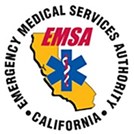The Advanced All-Hazards Incident Management Course or AAIM is a National Incident Management System (NIMS) compliant course designed specifically for All-Hazards Incident Management Teams (AHIMT) nationwide. The 48 hour class is intended to fill the needs identified to develop the training of all AHIMT organizations, including Type-1, Type-2 and Type-3 IMTs consistent with state and federal standards.
About AAIM
The AAIM course development was funded by a grant from the Department of Homeland Security (DHS) and the California Office of Emergency Services (CAL OES). The analysis and evaluation of the AAIM course materials was approved on June 2015 by the Department of Homeland Security for meeting the required Federal and State Course Review and Approval process. The AAIM Course is now in the Federal Emergency Management Agency National Preparedness Directorate National Training and Education Division State/Federal Sponsored Course Catalog. The catalog number assigned to AAIM is CA-036-PREV. With the AAIM course now an approved State/Federal Course, federal and state grants may be used to fund this training nationwide. Agencies wanting to host and/or instruct an AAIM Course should contact their State Training Officer or the California State Training Officer for additional information.
Website Resources
The AAIM website is a comprehensive resource for those involved in or interested in the Advanced All-Hazards Incident Management Course. It provides all the necessary materials to support an AAIM class, including:
- Student Guide
- Instructor Guide
- Coaches Guide
- PowerPoint Presentations
- Scenario Role Player Videos
- Evaluation Process
To learn more about participating in an AAIM course, visit the AAIM Participation section.
For a closer look at what AAIM has to offer, check out these informative videos:
Continuing Education Credits

The 48 hour Advanced All-Hazards Incident Management Course qualifies for twelve (12) hours of continuing education if conducted by CAL FIRE, an approved California EMS CE Provider.
Agencies other than CAL FIRE must coordinate with their EMS Programs and use their own agency's certificate if instructing the AAIM Course to provide students twelve (12) hours of continuing education.
For more information regarding AAIM or conducting a course, please contact:


